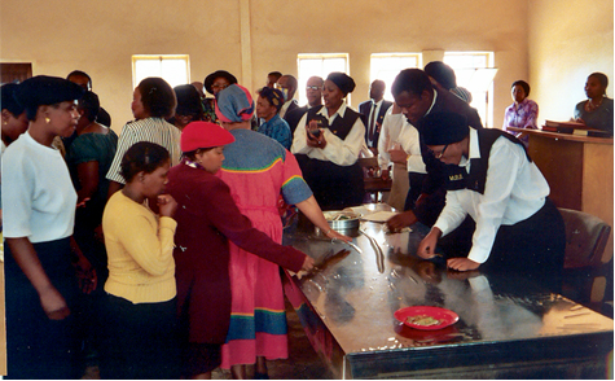Slideshow - South Africa
A slideshow of observations and impressions of worship in South Africa.

|
| Click to view the slideshow on worship in South Africa |
South Africa is a republic with nine provinces at the southernmost point of Africa. It is considered the richest and most industrialized country on the continent. It is also the world’s biggest exporter of non-petroleum minerals – especially gold, platinum, chrome, diamonds, and coal. Despite the diverse riches of the land, the nation’s economy is struggling to improve employment, housing, and education for the impoverished majority. Furthermore, the burgeoning AIDS calamity is devastating; with over 1,200 victims being buried daily and more than 20% of the adult population being infected. Tangible improvements are needed in order for the available resources to be best used for the good of all.
The people of South Africa reflect the diversity of the land, with a population of 40 million people: 77% Africans; 11% Caucasians; 9% Mixed Race; 2% Asians; and 1% Other. There are 11 National languages – representing all the major ethnic groups, yet English and Afrikaans are the main languages in higher education. Freedom of religion and a strong push to give all religions equal say has given high profile to the ethnic African religions (15%), Islam (1.5%), Hinduism, Humanism, and the Interfaith movement (2.5%) at the expense of Christianity (73%). Most Christians belong to Independent denominations. The rest of the population claims to be non-religious (8%).
Over the last decade, South Africa has experienced many answered prayers. First, the transition from white rule and apartheid to a non-racial democracy was achieved relatively peacefully rather than the feared bloodbath. Second, the institution of a functioning democracy and two successful general elections was accomplished in 1994 and 1999. Third, the massive growth of global vision and multiplication of South African mission involvements by all communities after the ending of South Africa’s diplomatic isolation in 1993. For instance, in 1993 there were 650 South Africans serving abroad. That number had reached 1,870 in 1999. Fourth, strenuous efforts by local churches to roll back the centuries of discrimination, oppression and pain have borne fruit. The Truth and Reconciliation Commission under Archbishop Desmond Tutu was one means to begin addressing the wrongs of the past. There is a great distance to go, but praise God for what has been achieved.